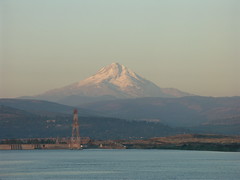A friend asked me recently about the phenomenon of "global dimming". This term is applied to the effect that particulate pollutants in the upper atmosphere have on the amount of sunlight that reaches the Earth's surface. It is very relevant to global warming and climate change because, as discussed in earlier blog entries, the Sun's energy is the heat source for global warming! Basically, these particles of pollution are usually the result of aerosols and particulate emissions from industrial combustion (including car and aircraft emissions). The composition of many of these particles make them reflective to sunlight, so when there are a lot of them in the upper atmosphere, less solar UV radiation reaches the Earth's surface. Hence, there is less energy to be trapped by greenhouse gases, and the effect of the particles is to reduce global warming! An additional mechanism could be that the particles serve as nuclei for cloud formation, and the clouds add to the reflectance of sunlight. We've known about this phenomenon for some time, because it also occurs naturally.  Volcanic eruptions normally pour tons of similar particles into the upper atmosphere and significant eruptions, such as Krakatoa and Mt. Pinatubo, ejected enough sulphate particles to produce measurable reductions in average global temperatures. The important fact for global warming is that the increase in human particulate pollution in the 20th century has actually slowed down the effects of global warming! Good? Well, not really. There are many negative ecological, economic and health effects of the pollution, e.g. acid rain. Moreover, the reprieve is only temporary, and the effects of dimming are already being surpassed by greenhouse gas warming. On the other hand, there have been recent suggestions by very serious scientists that, if the world's nations cannot get our act together soon, then by the middle of the 21st century, artificial pollution of the upper atmosphere might be one of our few, short-term solutions to global warming! That would be a Pyrrhic victory indeed.
Volcanic eruptions normally pour tons of similar particles into the upper atmosphere and significant eruptions, such as Krakatoa and Mt. Pinatubo, ejected enough sulphate particles to produce measurable reductions in average global temperatures. The important fact for global warming is that the increase in human particulate pollution in the 20th century has actually slowed down the effects of global warming! Good? Well, not really. There are many negative ecological, economic and health effects of the pollution, e.g. acid rain. Moreover, the reprieve is only temporary, and the effects of dimming are already being surpassed by greenhouse gas warming. On the other hand, there have been recent suggestions by very serious scientists that, if the world's nations cannot get our act together soon, then by the middle of the 21st century, artificial pollution of the upper atmosphere might be one of our few, short-term solutions to global warming! That would be a Pyrrhic victory indeed.